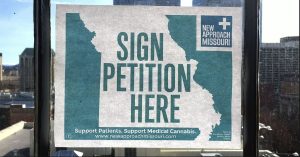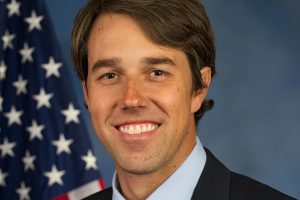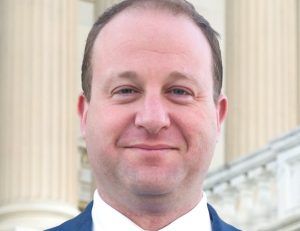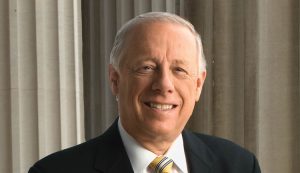Over the past two years, the Latin American cannabis industry has “emerged from the shadows” to command the attention of international firms and investors. Legal cannabis sales within the region are on track to reach $125 million in 2018; that figure is expected to rise to $12.7 billion by 2028.
These are the conclusions of The LATAM Cannabis Report, newly released by UK-based international cannabis industry consultants Prohibition Partners—a rather ironic name, since it’s dedicated to tracking and spurring the growth of the sector as it burgeons in the nascent post-prohibition world.
Prohibition Partners arrived at the figures through an analysis of pricing, consumption and patient datasets in the region. The greatest share of the market value will come from the medical sector, anticipated to be worth $8.5 billion a decade from now. Since Uruguay passed its ground-breaking general legalization law in December 2013, no less than 10 countries in the region have legalized medical cannabis to one degree or another.
Following a pattern set in other industries, the report predicts that the Latin American market will undercut global cannabis prices. “Offering a low-cost alternative to North American and European markets, licensed producers will look to cultivate in Latin America, creating an international export market,” it states, adding:
“Latin America has a prospective market of over 500 million adult use customers and 4.3 million patients, making it a core priority in cannabis companies’ global strategy. Its low-cost agricultural exports and increasing support for the legalization of recreational cannabis means it could play a pivotal role in the international cannabis industry.”
At the moment, only Colombia is aggressively promoting cannabis exports, while Uruguay is the sole country in the region to have legalized recreational cannabis. But the report sees this as only a beginning. Its overview of countries in the Latin American region now allowing a cannabis market, to one degree or another, is arranged in simple alphabetical order.
Argentina
A medical cannabis law was passed in March 2017 in Argentina, but it’s been moving very slowly. Private cultivation is not allowed. Two government research agencies have been approved to oversee cultivation and strictly limited imports from Uruguay have meanwhile been permitted—but only of high-CBD strains with virtually no THC. Small quantities for “personal use” have been decriminalized since a Supreme Court ruling in 2009, but this is again undefined and left to the discretion of the judge hearing the case.
Brazil
South America’s largest country passed a limited medical law in 2015 allowing importation, sale and use of CBD-only products. Cannabis has been decriminalized there since 2006, but no provision has been made for cultivation and “alternative penalties” such as a mandatory treatment program may be imposed. The U.S.-based Medical Marijuana Inc. has been approved to import CBD oil into Brazil.
The Brazil discussion includes an inaccuracy, stating that the government is controlled by “a nine-party coalition made up of the Workers’ Party” and its leftist allies. This embarrassingly misses the boat on the grave political crisis that’s ensued in Brazil since the last Workers’ Party president Dilma Rousseff was impeached and the political right took over in 2016.
Chile
In 2015, Chile’s legislature passed a law allowing sale and use of cannabis extracts for medical purposes. Cultivation for the program has ensued under the auspices of licensed non-profits, most prominently the Daya Foundation. Chile’s decrim policy has also been expanded, allowing home cultivation of up to six plants.
Colombia
Medical cannabis was legalized in Colombia by presidential decree in 2015 and, in 2017, the government established a legal framework for commercial cultivation. Large exports are anticipated.
“In 1986,” the report states, “Colombia legalized the manufacture, export, sale, medical and scientific use of cannabis.” That’s a reference to Law 30, or the National Narcotics Statute (Estatuto Nacional de Estupefacientes)—a generally hardline measure that nonetheless made note of the right to medical use of cannabis. It did not, however, establish any legal protocols for exercise of this right and harsh government eradication campaigns of both cannabis and coca only escalated in the ensuing years. Colombia decriminalized personal quantities by a ruling of the country’s Constitutional Court in 1994.
Mexico
In June 2017, Mexico’s then President Enrique Peña Nieto signed a bill to legalize medical cannabis (thus far only for CBD products). This was the fruit of activist efforts and, particularly, a court case won by the family of eight-year-old epilepsy sufferer Graciela Elizalde two years earlier, allowing her access to CBD oil. The report states that “homegrown cannabis for personal use had been legalized” in 2015. Not exactly. That was a Supreme Court decision, but under Mexico’s legal system there must be multiple high court rulings on a question before it has force of law. Mexico’s 2009 decriminalization law contained no provisions for cultivation.
Panama
On the Central American isthmus, Panama has made the most progress compared to the surrounding nations. In 2016, President Juan Carlos Varela signed a law “to enable the legalization of medical cannabis,” without actually legalizing it. Legislation to implement the framework established by that law remains pending.
Paraguay
In May 2017, Paraguay authorized the import of cannabis oil under the control of the Health Ministry. Then, in January 2018, a bill was signed into law that allows for domestic medical-marijuana cultivation. It’s as yet unclear what this legal industry will look like, but the law is aimed at bringing the black market under control. Paraguay has long been one of the world’s leading cannabis producers.
Peru
The celebrated case of Buscando Esperanza (Seeking Hope), a collective of mothers who were producing cannabis oil for their epileptic children before they were raided by the police, prompted passage of a medical cannabis law in November 2017 in Peru. But the implementing regulations are still pending and it’s unclear where supply is going to come from. Personal-use quantities of recreational cannabis have been effectively decriminalized.
Uruguay
The experiment in Uruguay, of course, warrants great attention. The country now has an Institute for the Regulation and Control of Cannabis (IRCCA), which registers growers’ clubs authorized to cultivate up to 99 plants annually. These clubs now number some 2,500. The IRCCA also oversees pharmacy sales, which began in 2017, with 35,000 Uruguayans now registered to purchase. “We moved the frontier of what is possible,” IRCCA director Martín Rodríguez boasts.
However, the report erroneously states: “Although recreational cannabis or medical cannabis was never illegal in Uruguay, the country has formally introduced a set of laws for their sale, possession and cultivation.” This is an overstatement. (A clearer picture is provided by a Brookings Institution report released this year, “Uruguay’s Cannabis Law: Pioneering a New Paradigm.”) In 1975, Uruguay decriminalized personal quantities of all drugs, with discretion left to the judge as to what this actually means. But the country was then under a military dictatorship and there were certainly no provisions for sale or cultivation.
The report also looks at Jamaica and the Cayman Islands—two countries that are not actually in Latin America, as they’re both English-speaking. Jamaica legalized medical cannabis in 2015 as part of a general overhaul of its drug law that also saw decriminalization and provisions for sacramental use by island’s ganja-smoking Rastafarians. The Caymans—which is not even an independent country, but a British overseas territory, although with broad autonomy—passed a CBD-only medical law in 2016.
The LATAM Cannabis Report provides a useful, if sweeping, survey of the region’s emerging cannabis industry and legal environment. Apart from its various small errors, the report’s biggest weakness is its failure to grapple with the question of what others have called “cannabis equity.” Low costs make the region attractive to foreign investors, but raise the question of whether the cannabis sector will suffer from the same iniquities that characterize the traditional agro-export sectors in Latin America: serving agribusiness and corporate investors as the peasantry is further marginalized. Or will the campesinos, who’ve borne the brunt of prohibition-related militarization, be assured of a dignified place in the emerging legal industry? Colombia is now grappling with that very question. The Prohibition Partners report does not.
Read the 69-page report here.
Related Articles
Arcview Predicts $57 Billion World Market for Cannabis by 2027
Vicente Fox’s Global Vision: Legalization of All Drugs
Slowly But Surely Cannabis Licenses Are Being Issued in Jamaica
Cannabis Reform Developments Around the World
If you enjoyed this Freedom Leaf article, subscribe to the magazine today!
The post Report Predicts $13 Billion Latin American Cannabis Market by 2028 appeared first on Freedom Leaf.
Source: https://www.freedomleaf.com/latin-american-cannabis-report/
Report Predicts $13 Billion Latin American Cannabis Market by 2028 is available on GigglesNDimples.com
source
https://gigglesndimples.com/2018/10/22/report-predicts-13-billion-latin-american-cannabis-market-by-2028/










 World famous music legend David Crosby is the star of a new radio advertising campaign in support of Measure 3. The radio ad will be premiering on Thursday, November 1st in markets around the state and will run through Election Day. David Crosby is a musician, songwriter, author, and activist who was the founding member of two of the most iconic rock bands, Crosby, Stills, Nash & Young and The Byrds. He also serves on the National Organization for the Reform of Marijuana Laws’ Advisory Board.
World famous music legend David Crosby is the star of a new radio advertising campaign in support of Measure 3. The radio ad will be premiering on Thursday, November 1st in markets around the state and will run through Election Day. David Crosby is a musician, songwriter, author, and activist who was the founding member of two of the most iconic rock bands, Crosby, Stills, Nash & Young and The Byrds. He also serves on the National Organization for the Reform of Marijuana Laws’ Advisory Board.

 most pro-cannabis reform candidates are in your district, check out our
most pro-cannabis reform candidates are in your district, check out our 
 Sixty-six percent of US adults believe that “the use of marijuana should be made legal,” according to
Sixty-six percent of US adults believe that “the use of marijuana should be made legal,” according to  This November, Measure 3 will be on the ballot in North Dakota to prohibit the prosecution of any person over the age of 21 for any nonviolent, marijuana-related activity and seal the records of adults with past nonviolent marijuana charges. The measure also would add penalties for individuals under the age of twenty-one in possession of, or attempting to distribute, marijuana; and provide penalties for individuals who distribute marijuana to anyone under the age of twenty-one.
This November, Measure 3 will be on the ballot in North Dakota to prohibit the prosecution of any person over the age of 21 for any nonviolent, marijuana-related activity and seal the records of adults with past nonviolent marijuana charges. The measure also would add penalties for individuals under the age of twenty-one in possession of, or attempting to distribute, marijuana; and provide penalties for individuals who distribute marijuana to anyone under the age of twenty-one.
 The National Organization for the Reform of Marijuana Laws (NORML) is pleased to welcome world famous musician David Crosby (founding member of Crosby, Stills, Nash & Young and The Byrds) to its Advisory Board.
The National Organization for the Reform of Marijuana Laws (NORML) is pleased to welcome world famous musician David Crosby (founding member of Crosby, Stills, Nash & Young and The Byrds) to its Advisory Board.